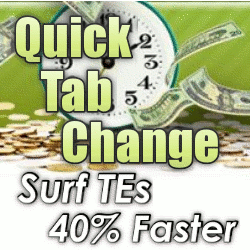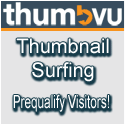You have to read this article by by Scott Jason about the Top 3 SEO Tips of 2008 This will help you to get the best in this blogging world.
Since 1998 I've spent the first several months of each year looking for the very best search engine optimization (SEO) tips of the previous year's end. This year I've come across the best SEO tips yet.
SEO Tip #1: Make Google Alerts Your Personal Online Spy
Google Alerts is a great way to let the world's biggest search engine be your personal online spy. This takes search engine optimization insider info to whole new level. Here's an excerpt straight from Google....
"Google Alerts are email updates of the latest relevant Google results (web, news, etc.) based on your choice of query or topic.
Some handy uses of Google Alerts include:
* monitoring a developing news story
* keeping current on a competitor or industry
* getting the latest on a celebrity or event
* keeping tabs on your favorite sports teams"
As you probably guessed, it's the second one we care about most, "keeping current on a competitor or industry."
Here's how it works... Each time Google finds a reference to the query or topic you request you will be sent an email with the details. This is like having an online spy to make sure competitors are not using your protected keywords (trademarked names, company names, etc.) It's also an instant identifier to know when your site or product is mentioned in a news story or even when a topic is hot so you can take advantage of the situation. It's the easiest way in the world to stop competitors' dirty tricks and identify trends that you can take instant advantage of.
It's fast, free and works every minute of every day. Let Google Alerts (http://www.google.com/alerts) do your most time consuming legwork while you reap the rewards!
SEO Tip #2: Optimize Your 404 Page and Always Be Found
"Error 404: Page Not Found" is a blessing that most Webmasters curse. Why? Getting a visitor on any page of your site is fantastic! Don't blow the opportunity. Not only can you make your "404" page a valuable sales tool, you can use the following search engine optimization techniques to attract customers in droves.
A.) Use your main keyword in your title, add a "pipe" (usually above the Enter key) and then use your secondary keyword. Here's as example for an SEO site "SEO - Search Engine Optimization Tips"
B.) Add some keyword rich content using one to two keywords for the page. If you have less than 250 words on the page, just use one keyword and use it no more than three times total. Bold the first use and italicize the second or third use. Keep in mind this is an "inactive" page so simply tell the visitor what your site is about and whet their appetite with a good description. Something like this works well... "Thank you for visiting SEO (bold) Group, Inc. We are sorry you landed on a missing page but don't worry, if you're looking for the very best search engine optimizations tips (bold), you're at the right place..." This will go on for a couple paragraphs or as long as you'd like then end it with something to the effect of "Please Click Here (link) to visit our site map or click any link to the left."
C.) Add your site's standard navigation system (bar, column, etc.) as mentioned above.
D.) Make the look and feel of the customized 404 page match your main site as closely as possible with a template, matched palette, cascading style sheets, etc.
E.) Create a link to the site map page if available, and make the link easy to find. You want your visitor off the 404 page and into your main content as quickly as possible.
Setting up a custom 404 page link usually takes less than five minutes on most major Web hosting companies like Godaddy.com. But whatever it takes, it's worth the effort.
SEO Tip #3: Get (Even More) Serious About Linking
I saved the most important for last. If you want to do well on any search engine, especially Google, linking is THE single MOST important thing you can do. It's that simple.
Here are the five things you MUST do to make your site #1 on Google:
A.) Find the highest page rank sites linking to your site AND your competitors' sites.
B.) Run monthly link campaigns and snatch up the best of the above identified Web sites.
C.) Run regular checks on what pages are still linking back to your site. Alsomake sure they did not move you from a high page rank page to a lower one (don't get cheated!)
D.) Eliminate any penalized sites you link to; ASAP!
E.) Check your search engine ranking AND your competitor's for each of your keywords every week. Do this, at the minimum, for Google, Yahoo, MSN and Alta Vista.
Inside Tip: Keeping up can be a lot of work so a lot of SEO Consultants (myself included) use SEO Elite (http://www.SEOeliteWeb.com) to do all the most difficult and time consuming work.
One last thing to know is that Google was originally a college student's project created for the sole purpose of defining a Web site's value by the sites that link to it. Twelve years later this is still it's main job. Linking is EVERYTHING to Google.
These few SEO tips are the very best of the best so use them wisely. Best of luck!
About The Author





























